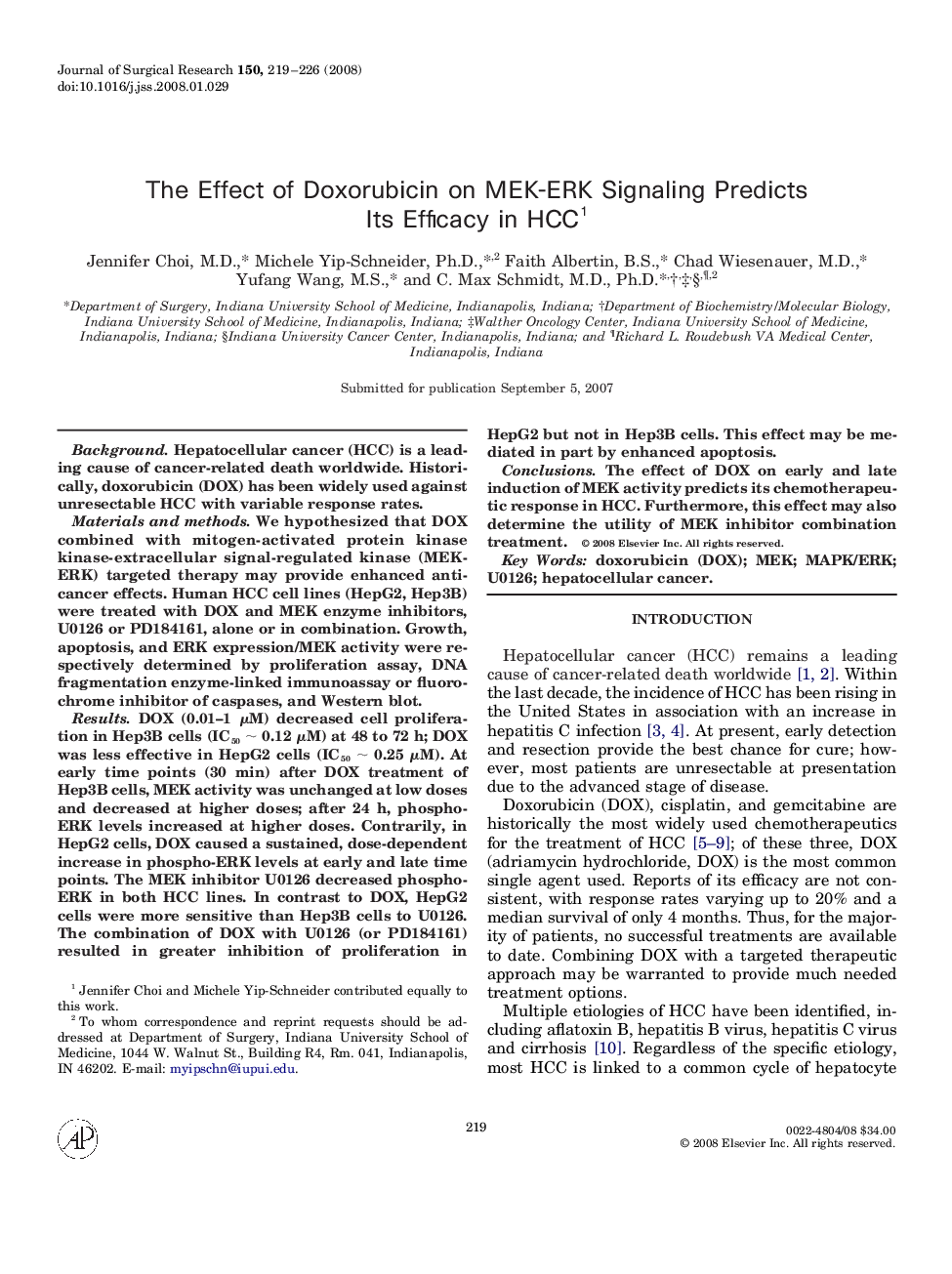| Article ID | Journal | Published Year | Pages | File Type |
|---|---|---|---|---|
| 4303359 | Journal of Surgical Research | 2008 | 8 Pages |
BackgroundHepatocellular cancer (HCC) is a leading cause of cancer-related death worldwide. Historically, doxorubicin (DOX) has been widely used against unresectable HCC with variable response rates.Materials and methodsWe hypothesized that DOX combined with mitogen-activated protein kinase kinase-extracellular signal-regulated kinase (MEK-ERK) targeted therapy may provide enhanced anti-cancer effects. Human HCC cell lines (HepG2, Hep3B) were treated with DOX and MEK enzyme inhibitors, U0126 or PD184161, alone or in combination. Growth, apoptosis, and ERK expression/MEK activity were respectively determined by proliferation assay, DNA fragmentation enzyme-linked immunoassay or fluorochrome inhibitor of caspases, and Western blot.ResultsDOX (0.01–1 μM) decreased cell proliferation in Hep3B cells (IC50 ∼ 0.12 μM) at 48 to 72 h; DOX was less effective in HepG2 cells (IC50 ∼ 0.25 μM). At early time points (30 min) after DOX treatment of Hep3B cells, MEK activity was unchanged at low doses and decreased at higher doses; after 24 h, phospho-ERK levels increased at higher doses. Contrarily, in HepG2 cells, DOX caused a sustained, dose-dependent increase in phospho-ERK levels at early and late time points. The MEK inhibitor U0126 decreased phospho-ERK in both HCC lines. In contrast to DOX, HepG2 cells were more sensitive than Hep3B cells to U0126. The combination of DOX with U0126 (or PD184161) resulted in greater inhibition of proliferation in HepG2 but not in Hep3B cells. This effect may be mediated in part by enhanced apoptosis.ConclusionsThe effect of DOX on early and late induction of MEK activity predicts its chemotherapeutic response in HCC. Furthermore, this effect may also determine the utility of MEK inhibitor combination treatment.
